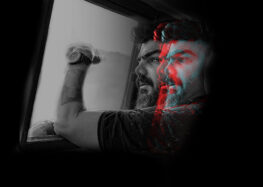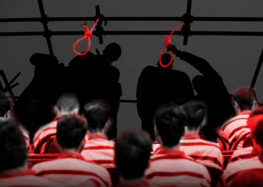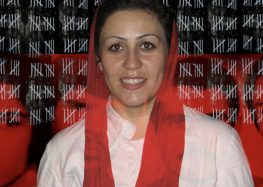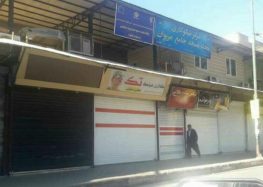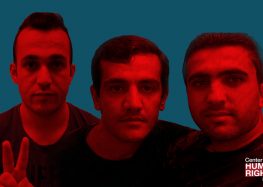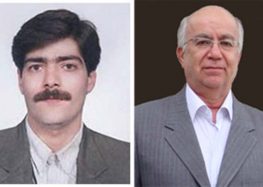Judiciary Representative Takes Statement of Kurdish Death Row Prisoners

Zanyar Moradi and Loghman Moradi at their court session.
After months of receiving no response to their letters, Zanyar and Loghman Moradi, two Kurdish prisoners on death row, were finally visited by a Judiciary representative on Tuesday, 24 April.
A Mr. Khodabakhshi, who identified himself as a representative of the Head of the Iranian Judiciary, met with Zanyar Moradi and Loghman Moradi (no relation) about their case.
A source close to the two prisoners’ families told the International Campaign for Human Rights in Iran that on Tuesday, 24 April, “A man named Khodabakhshi, who introduced himself as a representative of the Head of the Iranian Judiciary, met with Zanyar and Loghman Moradi at the Head Warden’s Office at Rajaee Shahr Prison. He told them that following a letter they had sent to the Head of the Judiciary last month, he had been appointed by the Judiciary to review their cases. He proceeded to listen to what the two prisoners told him.”
Security forces arrested Zanyar Moradi, 23, and Loghman Moradi, 25, on 2 August 2009, for the July 2009 murder of the son of Marivan’s Friday Imam. They spent nine months inside the Sanandaj Intelligence Office Detention Center, under severe pressure and physical and psychological pressure to make confessions against themselves. About six months after that, the two prisoners were transferred to the Sanandaj Central Prison and then to Evin Prison’s Intelligence Ministry Ward 209.
According to the source, the visit lasted about 4 hours. “The two prisoners took this time to describe their situation. After he wrote down the statements made by the two political prisoners, the statements were signed by the two men and sent to the Head of the Judiciary.”
On 22 December 2009, Judge Salavati of Branch 15 of Tehran’s Revolutionary Court sentenced Zanyar and Loghman Moradi to death by public hanging on the charges of “moharebeh” (enmity with God) and “murder of the Marivan Friday Imam’s son.” Under Iran’s penal code, moharebeh is meant to criminalize acts of armed action against the government. The two men were then transferred to Rajaee Shahr Prison in Karaj, where they later wrote letters alleging they had been tortured in prison and forced to make false confessions.
The two convicts objected to their sentence in February 2010 and the case was forwarded to the Supreme Court for review.

